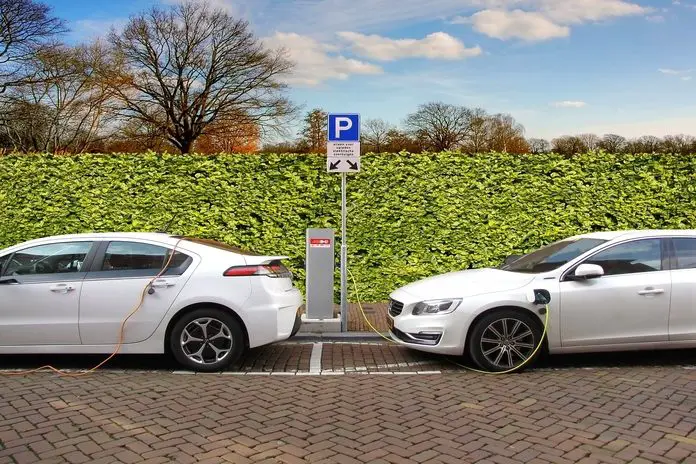
What are hybrid batteries and how long do hybrid batteries last are questions we often hear? I too got curious since I am not really that familiar with the auto and battery industry. So, I went on a research mode and came up with some very interesting information worth sharing,
What is the lifespan of a hybrid battery and what is it exactly? A hybrid battery is the battery used for hybrid electric cars. A new Hybrid battery can last from 8 to 10 years or 150,000 miles. But, in reality, it is not that straightforward. A battery’s lifespan depends on factors such as mileage, usage, quality of maintenance, and not age alone.
What Is A Hybrid Battery?
A hybrid battery or hybrid battery pack stores and delivers the power needed to run the electric motor of a hybrid electric car. It is the chemical reaction that occurs inside a hybrid battery that makes possible the hybrid vehicle technology to be a hybrid.
The hybrid battery pack is, without question, one of the most vital components that makes a hybrid car run. We know that hybrid cars are operated by a combined electric motor and an internal combustion engine. The engine gets its power source from the gasoline stored in a fuel tank, while the electric motor derives its energy from the hybrid battery.
Just like a typical car battery, a hybrid battery is also rechargeable. It contains several cells with two electrodes submerged in a sulfuric acid solution called the electrolyte. The cells are separated from each other with a polymer film to prevent the cells from touching each other to avoid a short circuit.
Differences Between A Typical Car Battery And A Hybrid Battery
As mentioned above, a hybrid battery is just like a standard battery, but there are a lot of dissimilarities between the two. Let me enumerate them one-by-one.
Lifespan
Under normal conditions, a hybrid battery is expected to last from eight years to ten years. On the other hand, a standard car battery is given a lifespan of from three to five years.
Usage
The main purpose of a standard car battery is to start the engine of a vehicle and power some of the car’s electrical components. It is commonly referred to as an SLI battery or a Start-Light-Ignition battery.
A hybrid battery, meanwhile, is used to power the electric motor that runs a hybrid electric car at a lower speed. It accounts for the improved fuel economy of a hybrid car that has become essential to the technology.
Composition
A typical car battery is usually a 40Ah 12-volt lead-acid battery consisting of six or 12 cells arranged in a series sitting in an electrolyte solution and contained in a single casing or housing.
A hybrid battery, on the other hand, is a pack of single cells, isolated from each other by a polymer film to prevent it from short-circuiting. The pack is a combination of lead-acid batteries and a Nickel-Metal Hydride (NiMH) battery. The NiMH battery is responsible for its fuel economy,
Environmental impact
Disposal of a standard car battery is an environmental issue because of its hazardous contents. These batteries need to be properly recycled since they contribute toxic waste to the ecosystem.
Nickel-metal hydride batteries are considered “zero landfill” stuff. The copper, nickel, and rare metals in the battery are extracted so that there is practically nothing left to dispose of in the landfill.
When To Replace A Hybrid Battery
When to replace a hybrid battery is an important question worth considering when buying a second-hand hybrid car since a new hybrid battery is not exactly cheap. A new hybrid car usually has a ten-year and 150,000-mile warranty but is truly expensive.
A second-hand or used hybrid car is a lot cheaper than a new one, but the life of its battery has to be given due consideration. What’s the point of buying a used hybrid car because you want to economize if you will have to replace its battery anyway? A replacement hybrid battery pack can easily cost from $3,000 to $3,500, including labor. (If you are a Toyota Prius Hybrid car driver then check this article).
As per experience, hybrid batteries begin to become liabilities when they are more than ten to 15 years old. There are some hybrid car owners who pride of their batteries lasting in the range of 200,000 miles, but this should not be considered normal if you’re contemplating on buying a used hybrid car and your finances are limited.
You will need to replace the old battery pack of a used hybrid car when it fails, of course. But, when is a car battery expected to fail? This is not an easy question to answer since each case is different from the other. Some batteries may fail even when it has only traveled 70,000 miles, others can go to 200,000 miles without any problem.
There are factors that lead to an early demise of a hybrid battery pack. These include extreme temperature, including humidity; the number of discharge and charge cycle; and battery chemistry.
Two important signs of a failing hybrid battery to watch out for are:
● The engine of the hybrid car will run nearly all the time, even when you are accelerating lightly
● There will be a significant drop in fuel economy
A fundamental failure point in the life of a hybrid battery is when an imbalance occurs between the individual cells. An example would be the unequal deterioration of the cells in a Toyota Prius which has 28 separate cells, each cell having a capacity of about 6500 mAh each. Because of time and usage, the capacity of some cell can decline to 1,500 mAh while others can still retain a 5,000 mAh or higher.
The capacity degeneration is never even. A balanced hybrid battery has more chances of living longer than an unbalanced one.
What To Do When A Hybrid Battery Fail
There are several options available to you if your hybrid battery fails. Regrettably, driving the car without the battery is not one of these options. A hybrid battery is a critical part of the drivetrain, so you can’t just rewire your car and run it solely on gasoline.
Option 1
Buy a new battery to replace the failed hybrid battery. Although, this will set you back financially by almost $3,000 to $3,500 including taxes and labor, at least you will have another ten years or more usage of your electric hybrid car. Some brands or models may be a lot more expensive than that, however.
Option 2
Buy a rebuilt or refurbished hybrid battery, This may not be available from a car dealer, but there are several third parties who do rebuilding and refurbishing of hybrid batteries by changing dead cells with new cells. You will just need to be more resourceful in looking for such third parties. The Internet would be a good source of information.
Rebuilt hybrid batteries are a lot cheaper, at least cheaper by half the price of an original, but they may have a shorter lifespan than that of an original.
Option 3
Buy a used battery, which normally would come from a hybrid car that has had an accident. There are a lot of risks in this option since there is no assurance that the battery will be operative until you’ve paid for it and it gets installed on your hybrid.
Shortcomings Of Hybrid Batteries And What The Battery Industry Is Doing About It
Even though hybrid battery packs are important and necessary for the operation of hybrid vehicles, they still get a lot of criticism from hybrid technology skeptics. These non-believers are quick to point out some of the shortcomings of hybrid batteries.
These include:
● its heavy weight which negates its much-touted fuel economy,
● lack of power that makes hybrid cars slower,
● the hazardous materials in a hybrid, like lead, that are unsafe for the environment, invalidating its claim of “going green,”
● high rate of failure and short lifespan.
These criticism have only encouraged battery manufacturers to improve their product to answer such negative assessments and make their batteries better.
Some of these improvements include:
1. Extending battery life. One critique against hybrid battery is a high rate of failure and short lifespan, scaring off some potential hybrid car buyers. But in reality, hybrid batteries are guaranteed to last as long as the car.
Warranties on hybrid batteries are also given for eight years or even longer. This means that if the battery fails, as long as it is within the warranty period, the car owner need not worry about a replacement since the manufacturer will shoulder the cost.
2. Lithium-ion battery alternative. Presently, many hybrid batteries are nickel-metal hydride (NiMH) batteries. NiMH batteries are relatively cheap, a dependable source of energy and are long-lasting. But the rising cost of nickel and a limited possibility of the increase in price slowing down, made battery manufacturers consider other alternatives to the NiMH.
One such alternative being considered is Lithium-ion or Li-ion batteries. These batteries are more currently popular for use on electronic devices such as laptops or MP3 players. Li-ion batteries are light and compact, and yet offer high energy and power disproportionate to their volume and weight. Plus, they are more efficient compared to NiMH batteries. All these make Li-ion batteries very attractive as an alternative to NiMH batteries.
It may still take some time for Li-ion batteries to take the place of NiMH batteries on hybrid cars. They are still more expensive to produce and their reliability is still not proven compared to NiMH batteries. But, with the continuing research and heavy investment in the technology, the industry might be able to offer lighter and more compact Lithium-ion batteries for hybrid cars in the market sooner than later.
3. Making the battery lighter. Heavy batteries are a scourge of drivers who take pains in their fuel economy. It’s true that the heavier the car and its load are, the more fuel is needed to run it.
Being aware of such an issue, a number of researches have been made to lessen the weight of hybrid battery packs. As an example, a group of researchers from the Massachusetts Institute of Technology (MIT) has discovered how to make lithium-ion batteries faster and lighter.
The original issue on Lithium-ion batteries was their rather slow energy release. Scientists believe that lithium-ion atoms are rather slow in moving through the material of the battery, However, the MIT researchers have this idea that it might be the technology’s nano-scale size that is causing the slow movement of the ions.
With the help of a lithium phosphate coating, the speed of the ions is increased, making it possible for them to reach the battery terminal faster. This newly added material also prevents the battery pack from degenerating faster, aside from making them lighter.
4. A new advancement in the lead-acid battery technology. Another alternative to NiMH batteries for hybrid cars is a lead-acid battery. The reliability of lead-acid batteries is unquestionable. Plus, lead-acid batteries are a lot cheaper than NiMH batteries.
New developments that create the UltraBattery makes the lead-acid battery a more reliable yet cheaper alternative for hybrid cars. The UltraBattery makes use of supercapacitors that can provide hybrid cars a powerful burst of energy while not degrading the battery.
Conclusion
How long do hybrid batteries last should not be a concern of potential hybrid car buyers. Manufacturers of hybrid cars have seen to it that the batteries last as long as the car. Warranties for these hybrid batteries are also long enough so that if the battery fails within the warranty period, the car owner has nothing to worry about replacement cost. The real issue here is, of course, the cost of a hybrid car.
If you are interested in knowing how long does a Prius Hybrid battery last, then check this out.





